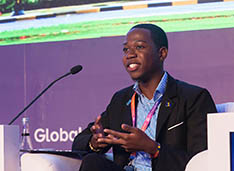
Pierre K Cooke (Jr), Global NCD Alliance Forum
Health and wellbeing are at the core of the sustainable development goals and are indispensable components of any conversation on the creation of a livable planet for future generations. With the indicator of the sustainability of a nation being the health of its youth, we must be meaningfully included as key stakeholders when it comes to creating better health systems.
The agency of youth is a powerful tool which should be included in any advocacy or accountability strategy looking to tackle the inadequacies in global health systems. Whether youth are engaged to advocate for better health policies or community-based interventions, it is necessary to facilitate capacity-building among youth so they can effectively become partners in the fight. If there is to be any sustainability of our message, we must ensure that the leaders of tomorrow are equipped today with the necessary skills for future advocacy. So whether it is training in delivering key messages in a concise but effective manner, or teaching youth how to present their issues or solutions to policymakers with passion and clarity, these soft skills will bode well for future interventions by these young leaders.
Recently at the 3rd Global NCD Alliance Forum, these were areas underscored throughout the three-day forum. At every workshop or panel discussion, there was the visible participation of youth and persons living with NCDs who provided personal insight into what would work best for their demographic. These reflections help to create context-specific solutions.
Similarly, if other global, national and local bodies committed to the meaningful participation of youth the effects would be impactful and long-lasting because youth today will be the politicians and presidents of tomorrow. Engaging us from now creates a lifelong beneficial partnership for sustainable development. Where the passion of youth meets the experience of adults in influential positions, we can create a synergy that would effectively function as an impactful coalition for change. We must root out the predatory recruiting practices of some groups who use youth only as figureheads. Going forward, what we need are systems that are both transparent and have effective models of meaningful youth participation.

